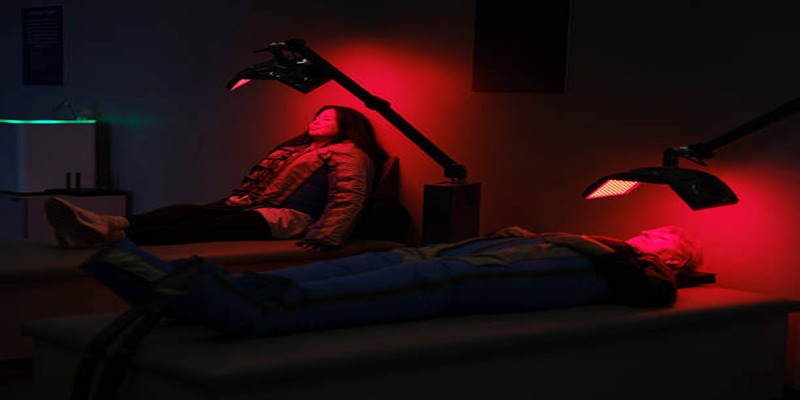Do you ever look in the mirror and see dark spots on your face that weren’t there before? It can be quite disheartening to find something new and unexpected on our faces, especially because our skin is such a visible part of who we are. Don't worry - this blog post will explore all things dark spots; what causes them, treatments for them, and how to prevent their appearance in the future. Even if you have resigned yourself to your current skin issues, come along with us as we unpack everything related to those pesky dark spots!
Definition and overview:
Dark spots, also known as hyperpigmentation or age spots, are patches of skin that are darker in color than the surrounding areas. They can vary in size and shape, and may appear on any part of the body but are most commonly seen on the face. These spots are caused by an increase in melanin production, which gives our skin its color. While they are not harmful, they can be a sign of underlying skin damage or aging.
Common causes:

- Sun exposure: UV rays from the sun stimulate melanin production, leading to dark spots on the face. This is why we often see these spots appear in areas that are most exposed to sunlight, such as the forehead and cheeks.
- Hormonal changes: Fluctuations in hormones, especially during pregnancy or menopause, can trigger an increase in melanin production and result in dark spots.
- Age: As we age, our skin produces less collagen and elastin, leading to thinner skin that is more prone to hyperpigmentation.
- Skin injuries: Any trauma or injury to the skin, such as acne or a cut, can cause an increase in melanin production and result in dark spots.
- Genetics: Some individuals are more predisposed to developing dark spots due to their genetic makeup.
Diagnostic procedures:
- Wood's lamp examination: This diagnostic tool uses a special type of light to highlight areas of excess pigmentation on the skin.
- Skin biopsy: A small sample of skin is taken and examined under a microscope to determine the cause and severity of dark spots.
Common misconceptions:
There are several misconceptions surrounding dark spots, so let's clear them up!
- Dark spots only happen with age: While age is a common factor in the development of dark spots, they can occur at any age and are not exclusive to older individuals.
- Only those with fair skin develop dark spots: People of all skin tones can experience hyperpigmentation. However, those with darker skin may have a higher risk of developing dark spots due to their increased melanin production.
- Dark spots can’t be treated: While they may be stubborn and take some time to fade, there are various treatments available for dark spots. We'll discuss them in detail below.
Natural Remedies to Lighten Dark Spots:

If you prefer to use natural remedies instead of commercial products, here are a few options that may help lighten dark spots:
- Lemon juice: The citric acid in lemon juice can help exfoliate the skin and fade dark spots. Simply apply fresh lemon juice to the affected area for 15-20 minutes before rinsing off.
- Aloe Vera: Aloe Vera has anti-inflammatory and skin-lightening properties that can help reduce the appearance of dark spots. Apply fresh aloe vera gel to affected areas for 30 minutes before washing off.
- Turmeric: This spice has been used for centuries in traditional medicine and is known for its skin-brightening properties. Mix turmeric powder with honey or milk and apply to dark spots for 15-20 minutes before rinsing off.
Treatment options:
- Topical solutions: Over-the-counter creams, serums, and gels containing ingredients like hydroquinone, glycolic acid, or retinol can help lighten dark spots over time.
- Laser therapy: Using specific wavelengths of light, lasers can target and break apart pigmented cells, leading to smoother, clearer skin.
- Microdermabrasion: This procedure uses a special tool to exfoliate the top layer of skin, promoting new cell growth and reducing the appearance of dark spots.
- Cryotherapy: Liquid nitrogen is used to freeze and destroy the excess melanin-producing cells, helping to fade dark spots.
Prescription treatments:
- Topical retinoids: A stronger form of retinol, these prescription creams can help speed up the skin's cell turnover rate and reduce the appearance of dark spots.
- Chemical peels with higher concentrations: For severe cases, a dermatologist may recommend a chemical peel with a higher concentration of acids to remove deeper layers of skin and target darker spots.
Professional procedures:
- Fractional laser resurfacing: This treatment uses a laser to target the deeper layers of skin and stimulate collagen production, leading to smoother and more even-toned skin.
- Intense pulsed light (IPL) therapy: A non-invasive procedure that uses multiple wavelengths of light to break up dark spots and promote new cell growth.
Prevention techniques:
- Sun protection: The best way to prevent dark spots from appearing is by protecting your skin from the sun's harmful UV rays. This means wearing sunscreen daily and seeking shade when outdoors.
- Skincare routine: A consistent skincare routine with products that contain brightening ingredients like vitamin C can help prevent dark spots and even out skin tone.
- Gentle exfoliation: Regularly exfoliating your skin can remove dead cells and promote cell turnover, helping to fade dark spots.
- Healthy lifestyle: Eating a balanced diet, staying hydrated, and managing stress can all contribute to healthy skin and prevent the development of dark spots.
Conclusion:
Dark spots on the face are common and can be caused by various factors such as sun exposure, hormonal changes, and aging. While they may not be harmful, many individuals seek treatments to reduce their appearance and prevent them from occurring in the future. By understanding the potential causes and implementing prevention techniques, we can achieve clearer, more even-toned skin. Remember to always consult a dermatologist before starting any treatment and embrace your unique skin - dark spots and all! So next time you look in the mirror, instead of feeling disheartened by those dark spots, remind yourself that they are a part of your story and embrace them with confidence.




